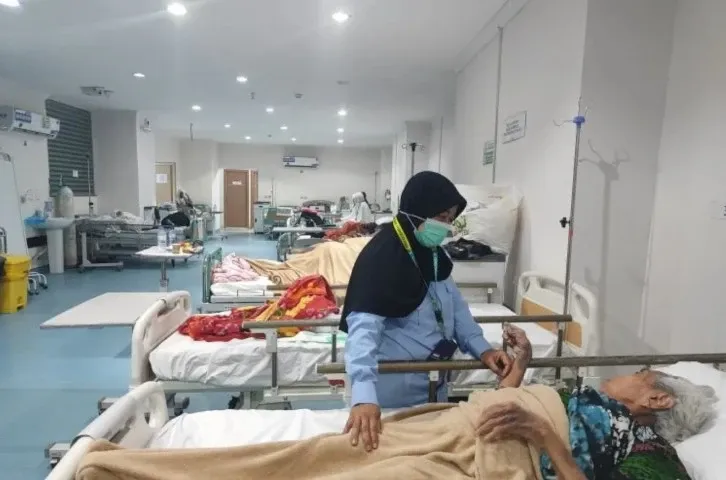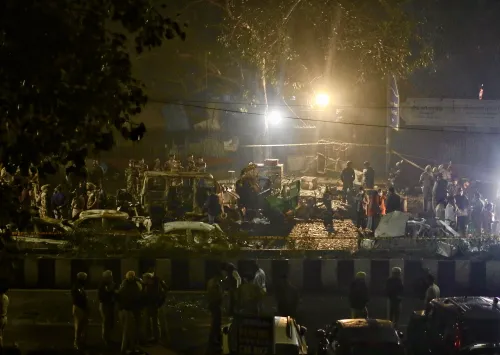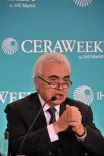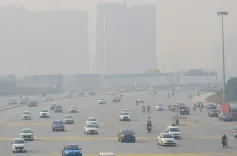What Impact Has Pneumonia Had on Indonesian Haj Pilgrims in Saudi Arabia?

Synopsis
Key Takeaways
- 99 Indonesian haj pilgrims have contracted pneumonia.
- One individual has sadly died from the illness.
- The Indonesian Ministry of Health emphasizes preventive measures.
- Extreme heat and crowded conditions increase risk.
- Monitoring and care are ongoing for affected pilgrims.
Jakarta, May 23 (NationPress) A total of 99 Indonesian haj pilgrims have contracted pneumonia while in Saudi Arabia, with one individual unfortunately succumbing to the illness, as reported by the Indonesian Ministry of Health.
The Ministry has cautioned that the surge in pneumonia cases necessitates immediate attention to avert further complications.
"The uptick in pneumonia cases among our haj pilgrims demands careful monitoring, as untreated conditions can escalate quickly," stated Liliek Marhaendro Susilo, head of the Haj Health Centre at the Ministry, during a statement on Thursday.
The afflicted pilgrims are currently under intensive care in hospitals located in Mecca and Medina, according to a report by Xinhua news agency.
Liliek indicated that the primary risk factors for pneumonia among pilgrims in Saudi Arabia include extreme temperatures reaching up to 47 degrees Celsius, exhaustion from a hectic schedule, crowded environments, and pre-existing health conditions or comorbidities.
She urged pilgrims to remain vigilant by wearing masks, maintaining hand hygiene, staying hydrated, and adhering to their prescribed medications if they have existing health issues.
Additionally, she reminded pilgrims to conserve their energy, refrain from smoking, and promptly report any health concerns to ensure a safe and smooth haj experience.
As of May 20, data from the Indonesian Haj Health Clinics (KKHI) in Mecca and Medina shows that the affected pilgrims are distributed across various sectors and groups.
Liliek emphasized that pneumonia can be life-threatening, especially for those with underlying health conditions.
Pneumonia is an inflammation of the air sacs in the lungs, typically caused by bacteria, viruses, or fungi.
"In the crowded haj environment coupled with extreme heat, the likelihood of respiratory infection transmission significantly rises," she noted.
The Haj Health Centre has recognized several risk factors contributing to pneumonia among pilgrims, including elevated temperatures.
Liliek further pointed out the added risk presented by comorbidities such as diabetes, hypertension, and heart disease, which increase susceptibility to pneumonia.
The ministry is closely monitoring the situation as pilgrims continue to fulfill their religious obligations.
According to real-time data from KKHI, the temperature in Mecca and Medina on Thursday ranged from 41-47 degrees Celsius.
A lack of adequate fluid intake in such conditions can lead to dehydration, making individuals more vulnerable to infections.









